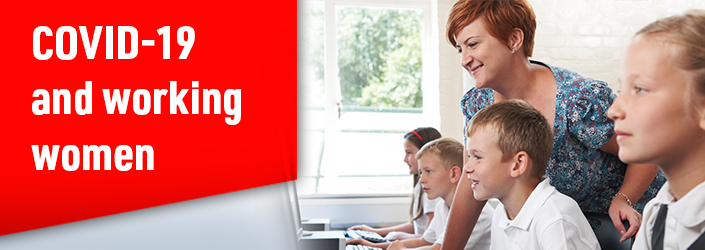The Impact of COVID-19 on Women and Work

Women are the essential workers of our Covid-19 response
Ryan Batchelor is the Executive Director of McKell Institute Victoria. He argues that women are at the frontline of our response to the coronavirus pandemic.
According to the Workplace Gender Equality Agency, nationally nearly 4 in 5 workers in health care and social assistance are women. That’s our nurses, midwives, doctors, pharmacists, allied health, aged care, social workers, and community welfare workers. All keeping us safe during this pandemic.
Women are also on the frontline of many other industries keeping us going through our social restrictions, such as in education and retail trade, and those doing essential functions in public administration working around the clock on our public health teams and in community support agencies.
Women are bearing the brunt of job losses
Many female dominated industries (other than healthcare), such as accommodation and food services, and arts and recreation, have been among the hardest hit by job losses during the pandemic.
Women are more likely to have casual or insecure work than their male colleagues. The ABS reports that 27% of female employees did not have paid leave entitlements, compared with 23% of men. The top industries for casual employment are accommodation and food services, retail trade, and health care and social assistance: all female dominated industries.
Early access to superannuation further compounds the impact on women
Many women have no superannuation at all. More than 23 per cent of women have no superannuation coverage, compared with 20% for men. This is because casual workers, and those who work for multiple employers, are less likely to meet the 15 hour per week threshold for compulsory superannuation guarantee payments to be made.
Policies that make access to superannuation easier will have negative effects on women’s financial security in retirement.
Women across the labour market are being affected, and few appear to be immune.
Women working on the frontline and in essential roles across a range of industries are facing the daily pressure of working through a dangerous pandemic and managing increasingly complex daily lives through social restrictions.
Women who are able to work from home are seeing increased stresses from working, living and caring in their homes, all day, every day.
Women who have lost work – entirely or partially – are facing increasing economic stress and the uncertainty of a deteriorating employment outlook.
These pressures compound on all women, and manifest in a range of ways.
Continue reading this extract here.
Read the original paper here – The Impact of COVID-19 on Women and Work. Research Insights, August, 2020 by Ryan Batchelor.

